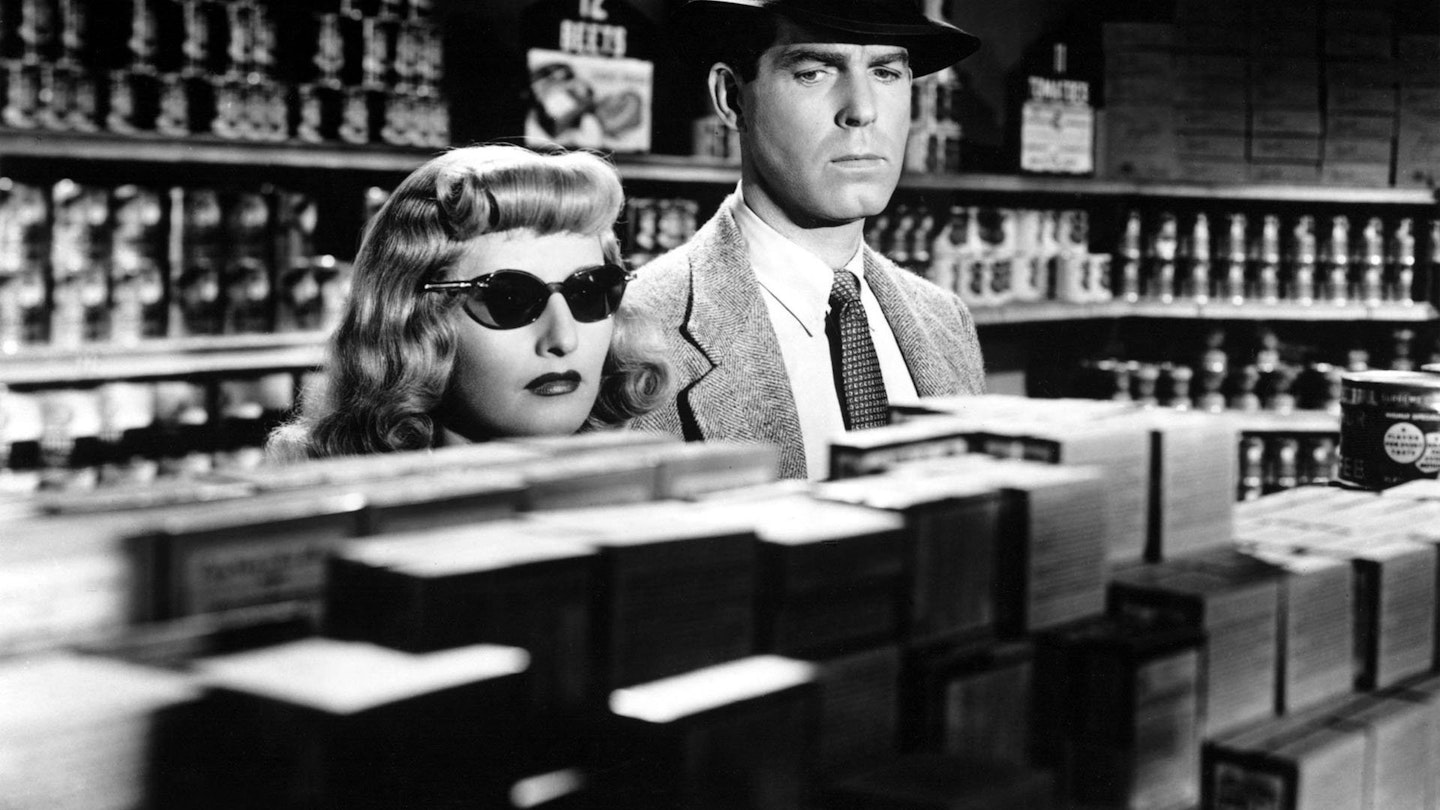It’s become a cliché to mention Great Oscar Injustices when celebrating classic movies, but Double Indemnity is such a prime example of the phenomenon, it’s impossible to resist. Billy Wilder’s hard-boiled masterpiece lost out to its polar opposite, cosy priest drama Going My Way — given a choice between Barbara Stanwyck in a fetishised anklet and Bing Crosby in a dog collar, the Academy plumped for the padre. Maybe they figured World War II America deserved something with more of a feel-good factor.
For his first thriller, Wilder took a break from his regular screenwriter Charles Brackett, calling upon no less a talent than Raymond Chandler to help him adapt James M. Cain’s sleazy (in a good way) tale of an insurance salesman seduced into murder by a suburban femme fatale. The two men didn’t get on — Chandler’s drinking trying Wilder’s patience on numerous occasions — but the resulting script is a beautiful hybrid. The director gives his comic instincts full rein in the exchanges between sucker Fred MacMurray and dogged investigator Edward G. Robinson, while the novelist finds room for sinister poetics in the voice-over — “Murder smells like honeysuckle.” With the whole thing enriched by Cain’s fatalistic worldview, it all (to quote Edward G.’s character) “fits together like a watch”.
Arguably the least pretentious of cinema’s great directors, Wilder distanced himself from claims that the movie represented an early foray into film noir, only grudgingly accepting that some of the lighting had a certain style to it and, yes, he was a fan of Fritz Lang’s German expressionist work. Regardless of stylistic considerations, Double Indemnity does boast an undeniable ‘noir’ element in Stanwyck’s über-bitch, Phyllis Dietrichson. Phyllis is a stunning creation, opportunistic yet calculating, remote yet passionate, world-weary yet as petulant as a spoiled child. She’s on screen a relatively short amount of time, certainly far less than MacMurray, yet it’s an iconic performance from the moment she appears at the top of the staircase wearing only a towel and a seductive sneer. She’s also granted some of the best lines in a film packed with memorable dialogue, culminating in a moment of shockingly frank self-awareness — “I never loved you, Walter, not you or anybody else — I’m rotten to the heart.” Guess what — this dynamic villainess didn’t win an Oscar, either. She lost out to Ingrid Bergman’s vulnerable victim from Gaslight.

